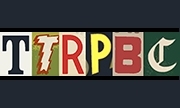Sword of the Lictor, chapters 32-35
Severian enters the castle ahead of the army. He is after all, expected. He meets Baldanders and Dr. Talos. It is revealed that Baldanders is constantly growing, and Talos is a form of doctor homunculus. Baldanders is also performing gruesome experiments and alterations on the captive lake people.
There are also three aliens within, their spacecraft overhead. Baldanders has the jewel, Severian tries to claim it back, and Baldanders hurls it from a window claiming to despise its superstition. It flares with light - and a torch thrown from a window was the signal for the "army" to attack.

 Help offset server costs by donating. This is totally optional. Any overages will go to library fines or new books.
Help offset server costs by donating. This is totally optional. Any overages will go to library fines or new books.

Comments
I suppose it shouldn't have surprised me, but I really hadn't expected the promised giant to be Baldanders - after all we have met or heard of so many giants that I was genuinely surprised when it turned out to be him.
The whole conversation between Severian and the cacogens seems fraught with significance, but right now I am not finding it very easy to decide what that significance is. It would be typical of Gene Wolfe, I think, to deliberately toss in stuff that we cannot yet understand, then retrospectively reveal the significance several chapters on.
I also realised when I had finished these chapters that I was 93% of the way through the kindle book, and a subsequent check of the contents list showed me that next week we will finish this volume. What will next week's exciting episode bring?
And yes, next week is the end of book 3. Nearly 3/4 of the way there. Who wants to organise the next slow read?
Yes, that conversation was pretty confusing. It certainly seemed like it was meant to convey more than it did.
I was not at all surprised that Baldanders was the giant - he played the giant Nod in the play, afterall. That Dr Talos is a homunculus is more surprising. He was earlier portrayed as the brooding muscle of the duo, but now he's really the mad scientist? And what was all that business of travelling to Nessus and pretending to be wandering minstrels all about? Baldanders seems pretty annoyed that the Cacogens favour Severian. Did Baldanders want to be the Autarch? What, really, is driving him forward?
Especially given the cacogens' comments to "think carefully about what we haven't told you and what we haven't shown you."
Yes indeed. Good questions, which I'd like answered as well!
> I did like the two masks of the cacogens. And it seems they know Severian will become Autarch? But yes, it's something where the significance escapes me.
>
It just occurred to me that some of the travels and meetings feel a bit like a rather grueling job interview...
> And yes, next week is the end of book 3. Nearly 3/4 of the way there. Who wants to organise the next slow read?
You're right, we should start planning it, as this one took a lot of discussion. I'm aware that not everyone has liked it (though I have very much come to appreciate it) but hopefully the slow read experience is felt to be rewarding
It definitely fits my personal criteria: great writing, long enough to warrant the slow read format, and deep so there’s a lot to talk about, and each member can bring something to the discussion.
You're right - we all felt back in book/chapter whatever that that play was very meaningful, though IIRC most of our discussion focused around what history or myth Gene Wolfe was drawing on to write it, rather than how it might prefigure later parts of the plot.
LEXICON
Hierodule: This word is normally used to refer to temple prostitutes or slaves, which would be odd in this context. The Lexicon Urthus tells us the word refers member of a race created by the 'Hierogramates of the higher universe, Yesod.' We are possibly not worthy of this knowledge yet, though. p.176
For kicks, I looked for meaning in the names of the three Hierodules:
They seem to be named after minor Roman gods:
Ossipago was a minor goddess of skeletal structures and the strengthener of foetal bones.
Barbatus means 'bearded' - the god who pushes out a boy's first beard?
Famulimis perhaps a misspelling of Fabulimus, the god who teaches a child his first words.
Link: https://en.wikipedia.org/wiki/List_of_Roman_birth_and_childhood_deities#Child_development
Fantassins: I thought perhaps this meant 'creature of fantasy' but it's really a French word for 'infantry'.
Corundum: A mineral of Aluminium oxide. Ruby and sapphire are varieties.
Anthroposophy: From Wikipedia - Anthroposophy is a philosophy founded in the early 20th-century by esotericist Rudolf Steiner that postulates the existence of an objective, intellectually comprehensible spiritual world, accessible to human experience. Many drug preparations used in anthroposophic medicine are ultra-diluted substances, similar to those used in homeopathy.
And in turn, Yesod is a Hebrew word meaning Foundation, often encountered in the compound plural phrase yesodei hatorah (foundations of Torah), and having particular reference to the Jewish mystical scheme of Kabbala - I suspect this latter is the direction Lexicon Urthus wants us to go.